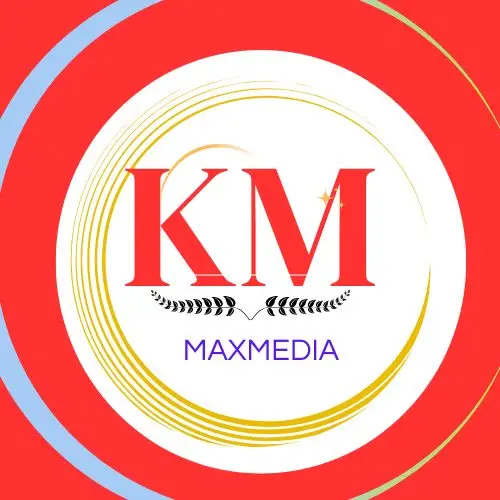Trump praised English of the leader of Liberia – where English is the official language
In recent days, the Liberia language has become an unexpected trending topic across the globe. With former U.S. President Donald Trump making remarks about the Liberian president’s “beautiful English”, social media exploded. But what’s the real story behind Liberia language, and why does it matter?
This blog explores five surprising facts about Liberia’s linguistic heritage, its influence, and the global buzz it’s creating right now.
🖼️ Image Prompt 1:

“Liberian President speaking at international summit with flags in background”
What Is Liberia Language?
The Liberia language isn’t a single tongue—it’s a rich mix of English, Liberian Kreyol (Kolokwa), and 30+ indigenous languages. The official language of Liberia is English, but the daily spoken language for many is Liberian English, a creole variant shaped by decades of cultural evolution.
Liberian English vs. Standard English
Liberian English, often misunderstood, blends African syntax with English vocabulary. For example:
- “He de go market” = He is going to the market.
- “You na try!” = You didn’t try!
These expressions make Liberia language unique and vibrant.
🖼️ Image Prompt 2:

“Two Liberian children speaking in a village, smiling”
Trump’s Comment That Ignited the Conversation
During a recent diplomatic meeting, Donald Trump praised the Liberian president for speaking ‘good English with a beautiful accent’, implying surprise. This compliment sparked a wave of global discussions, particularly on language, identity, and respect.
“He speaks such good English. Beautiful accent. Very good.” – Trump
Read the full article on CNN
While many Liberians speak fluent English, Trump’s comment unintentionally highlighted a lack of awareness about Liberia’s historical and linguistic ties to America.
Liberia’s Deep English Roots — A Shocking American Connection
Table of Contents
You might be surprised to know that Liberia was founded by freed American slaves in the 1800s. As a result, English has been part of Liberia’s national identity from the very beginning. The capital city, Monrovia, was named after U.S. President James Monroe.
“Liberians don’t just speak English — they’ve shaped their own.” – The Guardian
Check out the full Guardian article
🖼️ Image Prompt 3:
“Map of Liberia with key cities labeled, including Monrovia”
3 Powerful Ways Liberia Language Preserves Culture
Despite the dominance of English, Liberia language includes indigenous dialects like Bassa, Kpelle, and Kru. These languages are still spoken in villages, ceremonies, and storytelling traditions. Here’s how they remain strong:
Oral Storytelling in Local Tongues
Liberians pass history through proverbs and folktales, many of which are told in native dialects.
Radio Broadcasts in Indigenous Languages
Rural radio stations regularly air content in Bassa, Vai, and Grebo, reaching remote communities.
Language Revival Programs
Schools in some regions are now including mother tongue education, a powerful move for preserving linguistic heritage.
Global Reactions: Praise, Criticism, and Conversation
The internet’s reaction to Trump’s comments has been intense. While some saw it as a compliment, others called it a backhanded remark reflecting ignorance.
A powerful analysis from TIME Magazine labeled the praise as “offensive” due to its underlying assumptions.
“Why are we surprised when Africans speak English well?” – Read full TIME article https://mysportinfo.com/mysportinfo-com-bible-verses-of-the-day/
🖼️ Image Prompt 4:
“Social media reactions and tweets on Liberia language comment”
What Does the Future Hold for Liberia Language?
As Liberia modernizes, there’s a real threat of language loss. However, youth are showing renewed pride in speaking Kolokwa and documenting native dialects. With the global spotlight now shining, there’s hope for stronger cultural preservation and language respect.
AI and Liberia Language: The Next Frontier?
Linguists are training AI tools to understand and translate Liberian Kreyol, a big step toward digital inclusion.
Conclusion – One Nation, Many Voices
The spotlight on Liberia language may have started with a viral quote, but it’s reminding the world of something powerful: Language is identity. Liberia is a country with many voices—each one rooted in history, pride, and resilience.
Let’s use this global moment to celebrate linguistic diversity and challenge outdated stereotypes.
📌 Key Takeaways:
- Liberia’s official language is English, but Kolokwa and indigenous dialects thrive.
- Trump’s comment sparked a global debate on language expectations and bias.
- Liberia language reflects both African roots and American history.
- Preservation efforts are growing among youth and educators.
🔗 External Links:
- CNN – Trump Praises Liberian President
- The Guardian – Trump Comment and Liberia’s English
- TIME Magazine – Offensive Compliment or Praise?





Leave a Reply